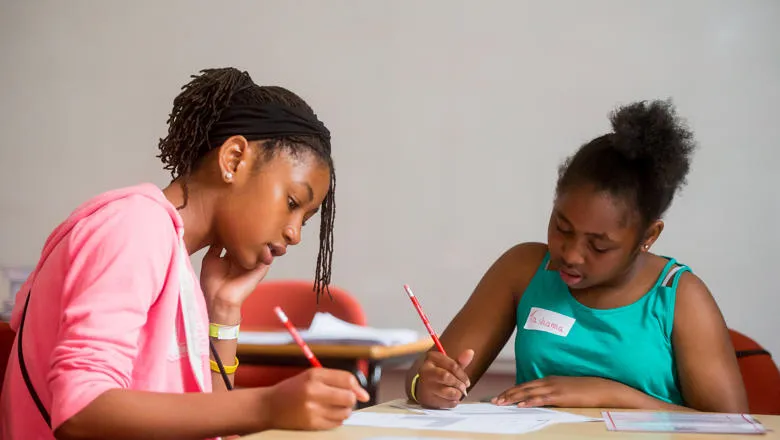Children and young people’s mental health has already been impacted by COVID-19 and the cost-of-living crisis adds yet another burden. Mental health services are already struggling to meet the demand and the pressure on families’ finances could see an even greater rise. It is all the more important to make interventions available to children and young people to help them navigate stressful life events - the research we will be undertaking in the Pears Maudsley Centre will work towards preventative interventions and targeted treatments.
Professor Emily Simonoff, Interim Director of the King's Maudsley Partnership for Children and Young People's Mental Health
12 October 2022
A third of parents think the cost of living crisis will significantly affect their children's mental health
A survey of UK parents by Savanta ComRes, commissioned by the King's Maudsley Partnership for Children and Young People's Mental Health, reported that one in three (34%) parents say they think the rising cost of living could affect the mental health of their children a great deal, while seven in 10 parents (72%) say it could affect it at least a little over the coming months.

The Savanta ComRes poll, which surveyed 2,150 UK parents of children between 5 and 17 years old, between 23-29 September - after the Chancellor’s mini Budget - also found a third of parents (33%) feel their child is currently experiencing mental health difficulties. This rises with the age of children to 43% of parents with children aged 16-17.
Amongst these children, parents thought the most common symptom or behaviour parents have noticed is anxiety (68%), which is cited by nearly twice as many parents as the next most common response - which is noticing depression or low mood episodes in their children (37%).
The survey also found that three-quarters of parents (75%) think government funding for children's mental health services should be increased.
A significant three-quarters of parents (77%) say they would consider paying for private healthcare services if their children were experiencing mental health difficulties. Only 3% say they definitely would not.
In some encouraging news, amongst those surveyed, the vast majority of parents (86%) say they feel able to support their children if they are experiencing mental health difficulties. Of those who say their children are currently experiencing mental health difficulties, the majority (56%) have successfully accessed professional help for their child's mental health. A further 3 in 10 (30%) say they didn’t successfully access professional help but tried to.
Data were weighted to be representative by age and gender of parents. Savanta ComRes is a member of the British Polling Council and abides by its rules. Full tables are available here.
The King’s Maudsley Partnership, which is made up of South London and Maudsley NHS Foundation Trust, King’s College London and the Maudsley Charity, aims to transform child and adolescent mental health care through a unique collaboration between world-leading academics and clinicians, to significantly speed up the time taken to bring research breakthroughs into clinical treatment.
David Bradley, Chief Executive of South London and Maudsley NHS Foundation Trust added: “Parents are very worried about how the cost of living crisis will affect their children, just as they begin to recover from a pandemic that affected their education, personal development and ability to deal with mental health conditions.
"Together, South London and Maudsley and King’s College London are already leaders in the research and treatment of anxiety. But the latest figures show how important it is to have a step change in prevention and care.
"The expert knowledge and specialist care at the heart of the King’s Maudsley Partnership will enable us to develop ground-breaking treatments that will transform the lives of children and young people at a time when improving their mental health has never been more important.”
Kelly Boone, who’s teenage daughter Avella is recovering from severe body dysmorphia said: “It is a big worry. My daughter is doing well with her recovery but it's still a daily battle. We try to cut back as much as we can but we have to make sure heating, lighting and water are available to her. She still has BDD which involves daily routines and rituals and she judges herself by very high standards. We can't compromise her mental health.
"She dropped out of college last year and thankfully now she's back, but she can't face public transport. We drive her there, which is an hour's round trip. Gas, electricity and fuel are three things for which we're going to have to pull money out of thin air. Every day we're bracing ourselves for what's next, hoping something will change but the costs keep spiralling."
The King's Maudsley Partnership
The Partnership will have its home at the £69m Pears Maudsley Centre for Children and Young People, which will be home to clinicians and academics in the field of children and young people’s mental health from the Trust and from King’s College London’s Institute of Psychiatry, Psychology & Neuroscience (IoPPN), as well as the outstanding Bethlem and Maudsley Hospital School and young in-patients. The Centre is due to open in Denmark Hill in early 2024.
It will provide treatment to young people with a range of conditions, from eating disorders and body dysmorphic disorder, to anxiety, ADHD, autism and trauma.
For more information, please contact Patrick O’Brien (Senior Media Officer).

